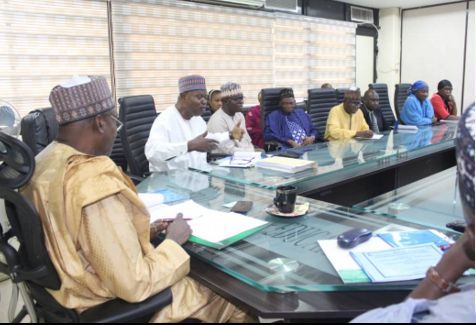
The National Senior Secondary Education Commission (NSSEC) is tasked with providing robust regulatory oversight to ensure that senior secondary schools in Nigeria adhere to established standards and deliver quality education. This function is central to maintaining accountability, equity, and excellence within the senior secondary education system.
Core Responsibilities of Regulatory Oversight
- Policy Implementation and Monitoring:
NSSEC ensures that all senior secondary schools comply with national education policies, including curriculum standards, infrastructure requirements, and teaching methodologies.- Regular updates and dissemination of policy guidelines.
- Comprehensive monitoring to align schools with the Federal Ministry of Education’s objectives.
- Accreditation of Schools:
- All senior secondary schools must undergo accreditation by NSSEC to validate their operations.
- Accreditation criteria cover infrastructure, teacher qualifications, curriculum implementation, and student outcomes.
- Periodic School Inspections:
- Routine inspections are conducted to assess compliance with minimum standards for teaching, infrastructure, and governance.
- Reports from inspections guide interventions and improvements where necessary.
- Teacher Registration and Standards:
- NSSEC works in collaboration with the Teachers Registration Council of Nigeria (TRCN) to ensure that teachers in senior secondary schools meet the required qualifications.
- Continuous professional development is mandated to maintain teaching quality.
- Curriculum Supervision:
- Oversight of the implementation of the approved curriculum by the Nigerian Educational Research and Development Council (NERDC).
- Promotion of emerging subject areas, such as digital literacy and entrepreneurship, to align with global education trends.
Compliance Mechanisms
- State-Level Oversight through SSSEBs:
- The establishment of State Senior Secondary Education Boards (SSSEBs) ensures that regulatory oversight cascades effectively to the state and local levels.
- SSSEBs collaborate with NSSEC to enforce compliance and provide regular reports on school performance.
- Intervention Funds and Conditionality:
- Schools are required to meet specific criteria to access the NSSEC intervention fund, including opening dedicated Senior Secondary Education Fund Accounts at the state level.
- Misuse of funds or non-compliance with fund guidelines attracts sanctions.
- Audit and Reporting:
- Schools must maintain transparent financial records and submit periodic reports on academic and operational performance.
- NSSEC conducts financial and operational audits to ensure accountability.
- Enforcement of Sanctions:
- Non-compliance with NSSEC standards results in penalties, including suspension of licenses, withdrawal of accreditation, or closure of defaulting schools.
Stakeholder Collaboration in Oversight
- Partnership with Federal and State Governments:
- NSSEC coordinates with the Federal Ministry of Education and state governments to ensure alignment in regulatory functions.
- Engagement with Private Sector and Donor Agencies:
- The private sector and international organizations are engaged in providing support for compliance initiatives, particularly in underserved regions.
- Community and Parent Involvement:
- Parents and communities are encouraged to monitor schools and report any lapses in standards to the relevant authorities.
Technological Integration in Oversight
NSSEC leverages technology to enhance the efficiency and transparency of regulatory oversight:
- Digital Monitoring Systems: Use of electronic platforms to track school performance, teacher data, and compliance reports.
- Data Analytics: Analysis of school-level data to identify trends, challenges, and areas requiring intervention.
- Online Reporting Portals: Schools and stakeholders can report compliance issues or seek guidance through user-friendly online portals.
Goals of Regulatory Oversight and Compliance
The regulatory oversight function of NSSEC aims to:
- Ensure that all students, regardless of geographical location, have access to quality senior secondary education.
- Promote transparency, accountability, and efficiency in the management of senior secondary schools.
- Align senior secondary education outcomes with national development goals and global education standards.
- Foster an environment of continuous improvement in teaching, learning, and school management.
By maintaining a strict regulatory framework, NSSEC safeguards the integrity of senior secondary education in Nigeria, ensuring it remains a foundation for personal development and national progress.
